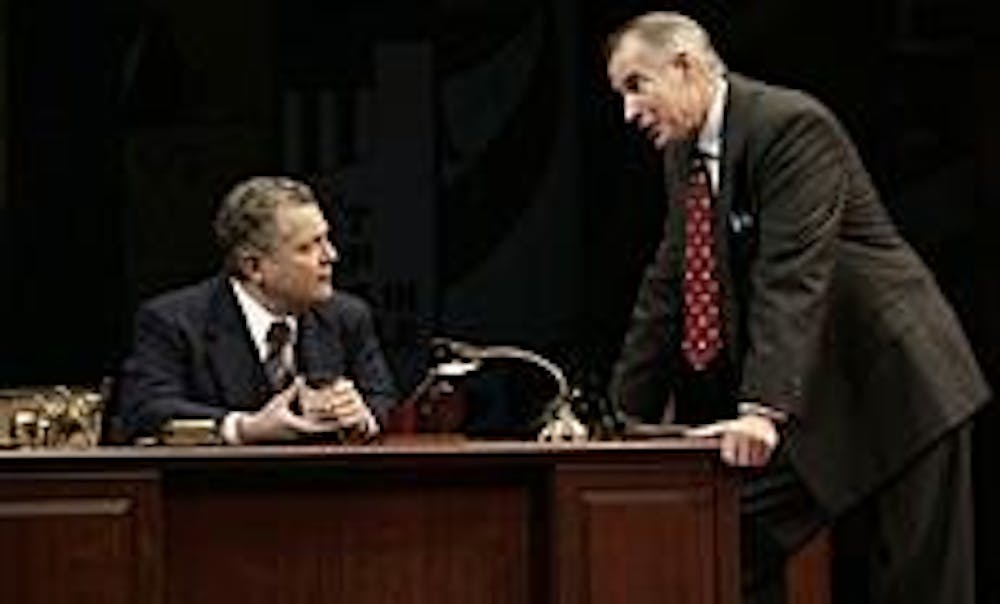'State of the Union' Ford's Theatre 511 10th Street N.W. Metro: Metro Center Tickets: $25-$52 Through Oct. 22 Grade: A-
Howard Lindsey and Russel Crouse couldn't predict the modern significance of their political satire when "State of the Union" was first performed more than 60 years ago. But at Ford's Theatre, a new production of the Lindsey-Crouse play directed by D.C. theater vet Kyle Donnelly seems to be just in time for this year's upcoming midterm elections, and the message of political honesty triumphing over corruption is very apt in today's increasingly dishonest political arena.
"State of the Union," which won the Pulitzer Prize in 1946, takes place in 1948 as Republican insiders are grooming a handpicked candidate for a run at the presidency. The backhanded dealings of party bosses act as the major point of contention throughout the entire three-act production.
Grant Matthews (played by the wonderfully compelling Jim Abele) is the protagonist. He is a man conflicted by the desires of the Republican bosses to be the next president and the challenges of remaining true to his morals. The production opens with James Conover (Sam Tsoutsouvas), the corrupt party insider who hand picks Matthews for the job. Conover has done his research and knows that Matthews will fit the bill and get the Republicans back in the White House.
Conover and Matthews' newspaper-publisher mistress Kay Thorndyke (Martha Hackett) devises a plan to have Matthews speak across the country. But in an attempt to keep up appearances Matthews must ask his estranged wife to join him. Mary Matthews (Ellen Karas), Grant's wife, is a strong soul who acts as a voice of reason amid the corruption of Conover and Thorndyke.
The story is only just beginning. Will Matthews go the way of the party bosses or hear the pleas of his wife to stay true to his morals? Abele is engaging as the presidential hopeful mostly because he connects well with the audience. He convinces the audience that he is Grant Matthews, especially after his final monologue where he directly addresses the audience. He also strikes the perfect balance between political vote-monger and morals-driven businessman.
The play pays off in the third and final act, when Matthews and his wife have returned from the speaking tour and hold a dinner party at their home. The cast of characters that join them is a rare glimpse of the greats of the D.C. theater scene and also the comic high point of the play.
The third act is also particularly crucial, because it is here that Matthews realizes the good intentions of his wife. Mary Matthews represents the American public, and she does it well. Karas is perfect for the role and fully understands her duty as the moral backbone of the cast.
Director Donnelly knows how to craft an intriguing production. Her ability to relate the play back to the political turmoil of today is what makes it such a success. The staging is well conceived, using campaign ads from the '50s all the way into more recent times to begin each of the three acts. The background is a collage of campaign posters of the past and the stage is painted in red and blue, which works well and serves to connect the play further to today's political arena.
The production is superb, but it is also the experience of it all. Seeing a classic play in the famed Ford's Theatre about political corruption, surrounded by the power players of the D.C. politics scene and brought to life by D.C. theater vets, is really what makes Donnelly's production work.
It is a great thing when an old play still has significance 60 years later. And after many years in production obscurity, it is nice to see the Lindsey-Crouse play performed, and performed well.





